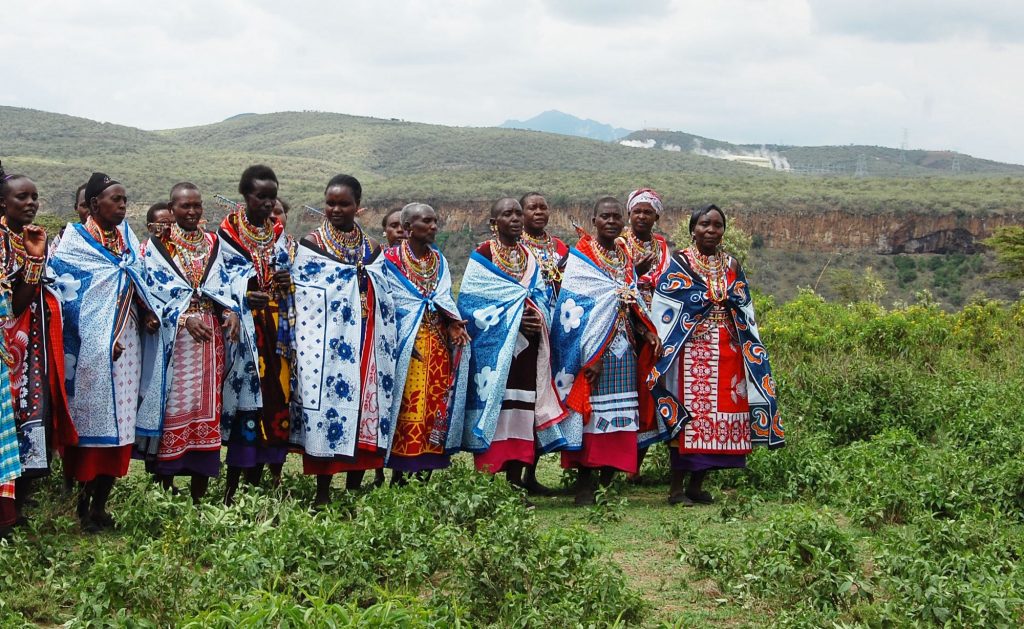Kenya: Community Engagement and the sacred nature of geothermal energy

A great description of a project that looks on how Kenya can learn from the successful community engagement of Maori tribes in geothermal development for its local Maasai population.
In a great article published this week by Power Africa, the authors – including my good friend Caity Smith – provide a great insight into a fantastic project where “Power Africa is sharing best practices on community engagement across cultures and continents.”
To Kenya’s Maasai tribes, areas of geothermal activity within the Rift Valley hold cultural and spiritual significance. The natural heat source that flows from underground is critical to their nomadic way of life, and the land above is abundant with wildlife and places of ritual. Kenya’s government has recognized the importance of natural resources to the Maasai and other tribes and strives to protect tribal rights. Yet, Kenya is one of Africa’s fastest-growing economies and requires continued growth in power generation capacity.
To New Zealand’s Maori tribes, geothermal resources are more than simply a source of electricity; they are a sacred gift from the gods. Maori have used natural geothermal pools for centuries to prepare food, treat illness, and in religious ceremonies. Today, New Zealand’s modern economy relies on geothermal energy for over 16% of its electricity generation. Geothermal projects, if not managed responsibly, can negatively impact local populations by depleting water reserves and disrupting migratory patterns, cattle grazing, and land stability.
New Zealand has set a global standard for engaging affected communities during geothermal development. New Zealander energy utilities have successfully partnered with Maori Iwis (tribes) to ensure that the rights and customs of Maori communities are protected while at the same time meeting the country’s electricity needs. Companies like Tauhara North ?2 Trust (TN2T), a joint venture between the Maori and state-owned utility Mercury, have successfully developed geothermal resources while improving the wellbeing of local populations through environmental stewardship and local economic development projects.
In recent years, the Kenya Electricity Generating Company (KenGen), the largest power producing company in the country, has encountered project delays or cancellations due to disagreements with tribal communities. KenGen has developed over 500 MW of geothermal power generation at the Olkaria field near Naivasha, Kenya. In addition to hosting one of the world’s premier geothermal resources, Olkaria is also home to a large population of Maasai. Tribal objections over transmission lines, pipeline infrastructure, and access roads have led to project delays, cost overruns, and even project cancellations. Relations between KenGen and Maasai and other local tribes have often been tense.
Thousands of miles away, New Zealand’s power sector serves as a model for how proactive stakeholder engagement can help energy developers design smart social and environmental programs. Experience in New Zealand’s geothermal sector shows that community engagement helps to avoid costly legal suits, project delays and protest while creating shared value among utilities and tribal groups.
A Model for Community Engagement in East Africa
Recognizing the similarities between New Zealand and Kenya, Power Africa and its partners, the United States Energy Association (USEA) and the Geothermal Energy Association (GEA), have facilitated a Kenya–New Zealand Partnership between KenGen and three New Zealand companies?—?Contact Energy, TN2T, and the Ngati Tahu Tribal Land Trust (NTTL).
In the course of a year, Power Africa is supporting four exchange missions between KenGen senior leadership, Maasai representatives and their New Zealand counterparts. During the first exchange mission to New Zealand, Kenyan representatives toured the Ohaaki geothermal station, a model site that combines power generation with flood mitigation infrastructure, a sacred thermal pool, and an internship program that opens career pathways for Maori youth in the energy sector. The terms of the project were negotiated over six months and enshrined in a memorandum of understanding between Contact Energy and Ngati Tahu, the local Maori tribe. During the second exchange visit, New Zealand representatives toured the KenGen-supported RAPland community, a resettlement project with newly constructed homes, an elementary school and health clinic. As a result of dialogue during the visit, KenGen is now considering incorporating shared land ownership arrangements with the local Maasai communities. By the end of the exchange, KenGen plans to emerge with a state-of-the-art community engagement program that draws on New Zealand’s successes.
For the full article see link below.
Source: PowerAfrica via Medium